‘Passports should not specify a person’s gender’

Man or woman? Milusch does not want to choose and prefers to self-define as non-binary. For the 28-year-old Zurich resident, Germany's decision to open the door to a "third gender" doesn’t go far enough: the mention of a person’s gender should also be removed from all identity papers. To eliminate categories, Milusch has changed name and appearance.
Milusch Pati is neither a woman nor a man, neither she nor he. And, her/his fight begins with the language: “I do not wish to be defined by ‘he’ or ‘she’.”
While the English language can adapt by allowing the use of the neutral singular pronoun “they”, Swiss official languages (German, French, Italian) do not have a neutral alternative, like many other languages.
This is one measure of the extent of societal upheaval involved in introducing a third gender. News that Germany could become the first country in Europe to recognize a third gender has ignited a small revolution (see box).
Germany to allow third gender option
In November 2017, Germany’s constitutional court ruled that the civil status law must allow a third gender option. The decision will pave the way for Germany to become the first country in Europe to do so.
The court gave parliament until the end of this year to create the necessary legislation which provides for the entry of a third sex to be included on official documents.
The court in Karlsruhe proposes “inter” or “divers” or another “positive name of the gender” to be registered.
Milusch could take the time to explain that Mr or Ms or Mrs is not appropriate at a restaurant, in a shop, or at the post office.
Milusch’s desire to escape binary gender identities is the result of a long process of reflection: “I first noticed that I didn’t like to be described as a woman. However, I never felt entirely a man either.” These questions are even more apparent when a transgender friend begins a process of transition: “It fascinated me but I didn’t understand the reasons for it.”
In the beginning of 2017, Milusch went in search of her/his identity. “I went to see a therapist specialising in gender issues. Following this, I tried to make some changes and see how they influenced how I felt.”
The Zurich chemist decided to change names, adopting the name Milusch, which she/he considers more neutral than the name given by her/his parents.
“I don’t want my old name to appear in the article,” warns Milusch, who wishes that people understand and accept the new non-binary identity.
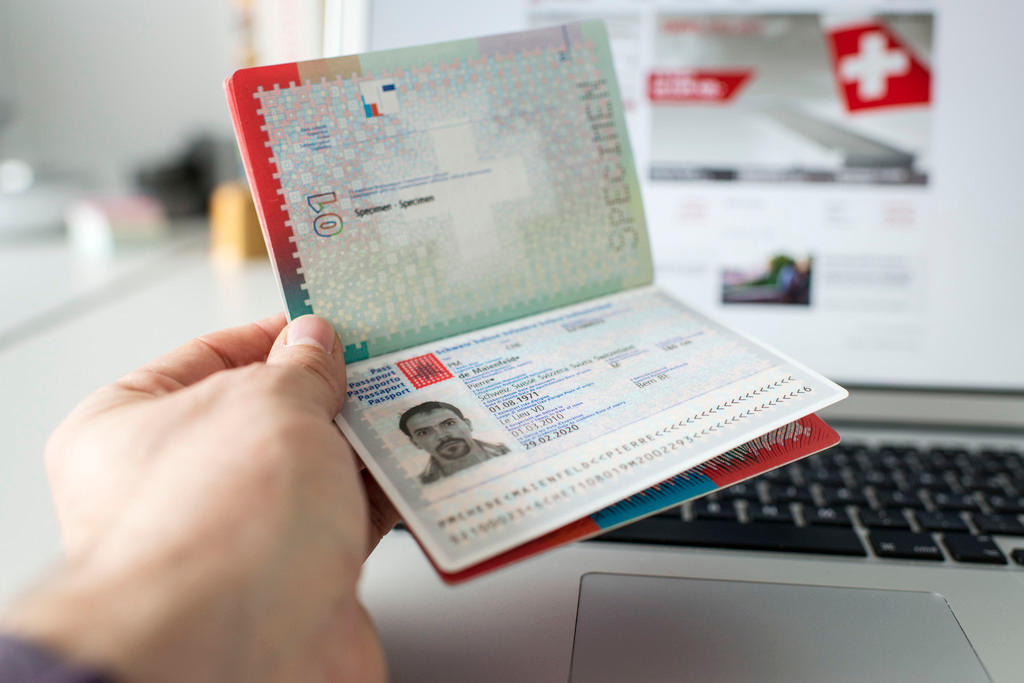
More
As countries tighten transgender protections, will Switzerland follow?
“I do not want to take testosterone”
After getting a new, shorter haircut, there was a greater sense of coherence; Milusch’s appearance corresponded better to her/his feelings.
The metamorphosis stops there, at least for now: “Some non-binary people undergo other steps, such as a mastectomy or decide to follow a hormonal treatment. Personally, I don’t intend to take testosterone, because I wouldn’t be happy with all of the side-effects.”
Sitting in a trendy café in the heart of Zurich, Milusch speaks today in a hoarse voice and says, “I’m a little sick. So, I have a lower voice, which I like.”
Milusch’s identity is built at the crossroads of the codes of masculinity and femininity, a subtle blend of the characteristic features of both genders.
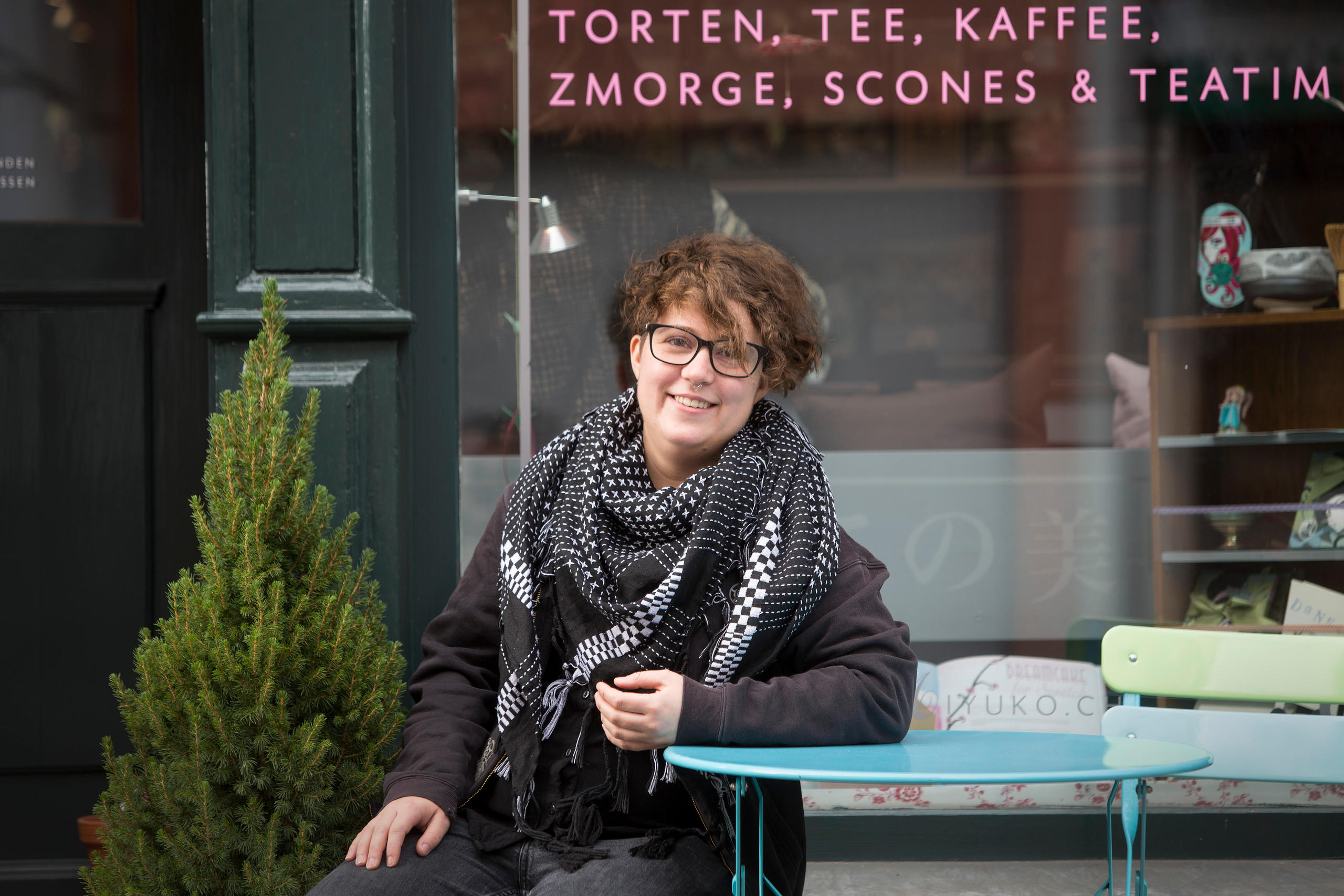
Some of Milusch’s group of friends got used to the new name. “My friends understood easily. There was only one person who had trouble accepting, and I cut ties with her. Some members of my family are not aware yet.”
Two years ago, Milusch had already come out as a pansexual* (describes individuals who are potentially sexually or emotionally attracted to individuals of any sex), an announcement that was embraced by her/his family.
However, there is more work involved in explaining why one does not want to be a man or a woman. “It’s very complicated because many people don’t know what it means, while homosexuality or transgender issues are more familiar themes.”
The subject is also marginalised in the the LGBTIQ community. “At gay pride, we talk about homosexual men, a little bit about lesbians and sometimes trans people. That’s how our patriarchal society works, men have more visibility in every area.”
Neutral toilets like at home
Identity cards, administrative forms, social networks, dating sites, everywhere we are asked to tick the box for man or woman.
“Even when I want to buy clothes on the internet, I have to define my gender. It’s painful and I don’t understand why this is so important,” says Milusch.
Has Germany therefore taken a step in the right direction by opening the door to a “third gender”?
“Yes,” responds Milusch, “but I think that we should distance ourselves from categories and stop specifying a person’s gender on a passport. It is an indication that doesn’t offer anything; I find that eye color makes it easier to identify a person than his or her gender. ”
The difficulty in eliminating categories also affects the search for a partner. Many dating apps only offer two options: male or female.
“On Tinder, for example, I have to explain my situation in my biography and I feel that many people don’t understand.”
When we are not defined as men or women, which public bathrooms do we use?
“If I’m alone, I go to the women’s bathroom. Sometimes, if I’m with a friend, I go to the men’s but I don’t feel comfortable, because you often have to pass the urinals at the bathroom entrance,” says Milusch.
Her/his idea: install neutral bathrooms everywhere. “We already have them at home. It would be more logical to simply have a separation between urinals and stalls.”
Milusch is determined to change mindsets, including by engaging in the Young Socialists Switzerland organisation.
“It’s important to bring these issues to the political sphere. I want to fight for marriage for all, a right that could also benefit non-binary people.”
Recognition of an alternative to “he” and “she” seems a long way off for the current Swiss political agenda.
How do you raise awareness of a cause when even the words to express it are lacking? “There is not always a word for things, but that does not mean they do not exist,” concludes Milusch.
*pansexual: characterising individuals who are potentially attracted sexually or emotionally by people of all sexes and genders.
Legal situation in Switzerland: Male or female?
The gender has to be mentioned in birth certificates in Switzerland. But moves are underway to facilitate a change of sex.
Parents have three days after birth to indicate the gender of the new-born to the registrar’s office. But the Academy of Medical Sciences has called for an extension to 30 days.
The birth certificate can be adapted but the procedure is complicated. The parties concerned have to apply with the courts for a gender change or a new first name.
The Federal Justice Office currently prepares a proposal to simplify the procedure. It is likely to be put to consultation next year.
In the future it might be sufficient to ask the registrar’s office to adapt the documents. (Source: SDA-ATS agency)
Translated from French by Jessica Plüss

In compliance with the JTI standards
More: SWI swissinfo.ch certified by the Journalism Trust Initiative












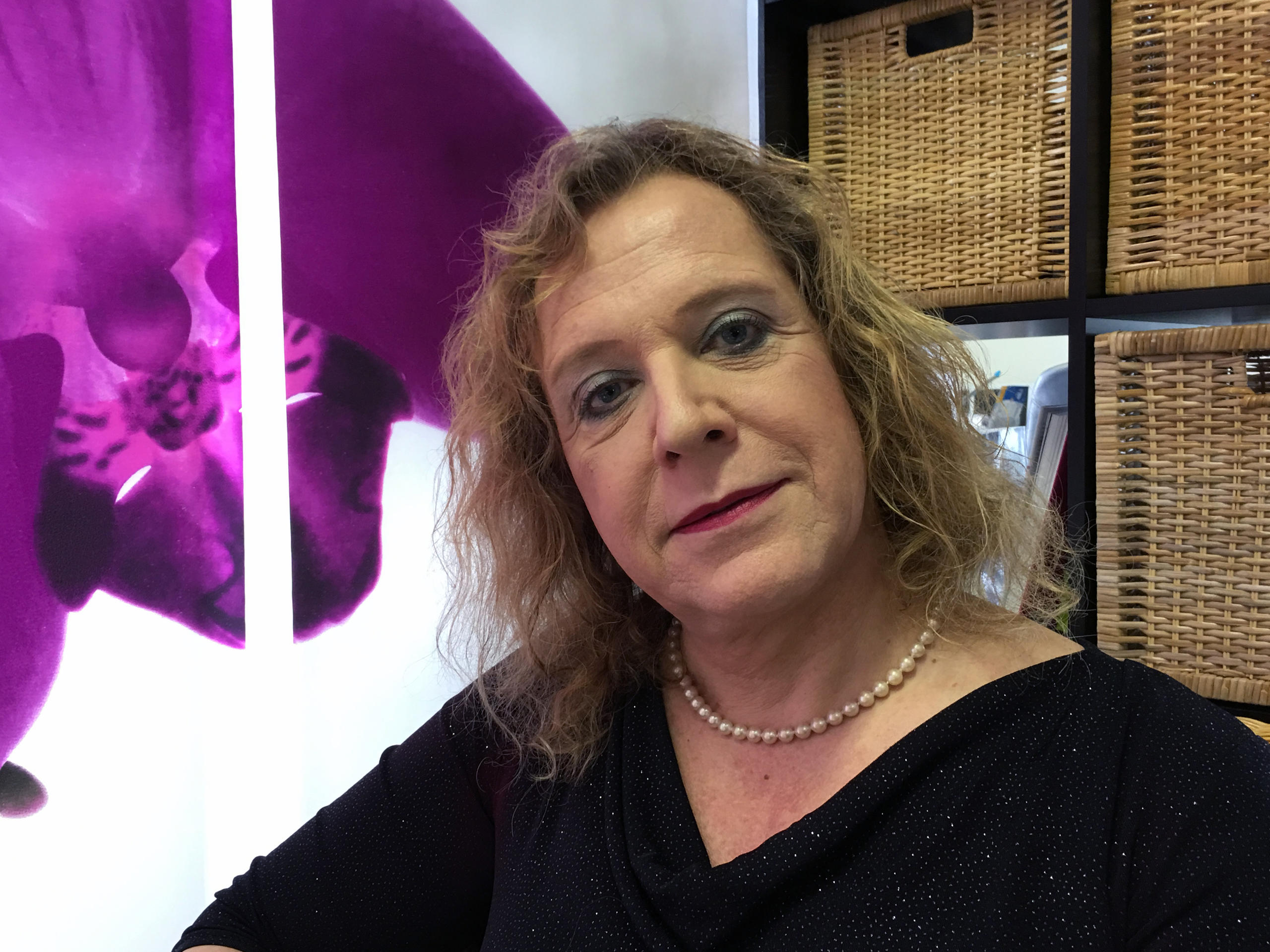
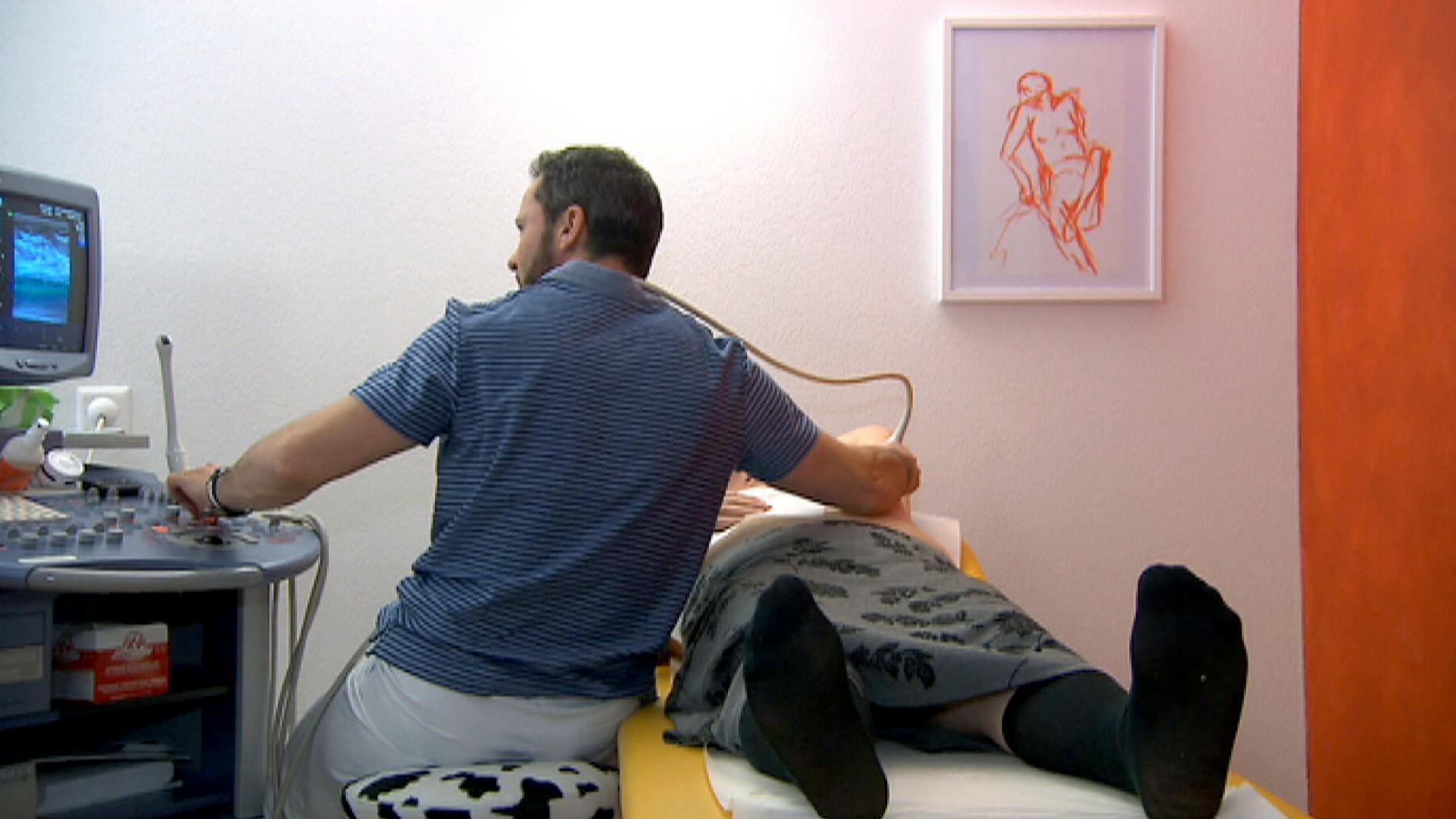
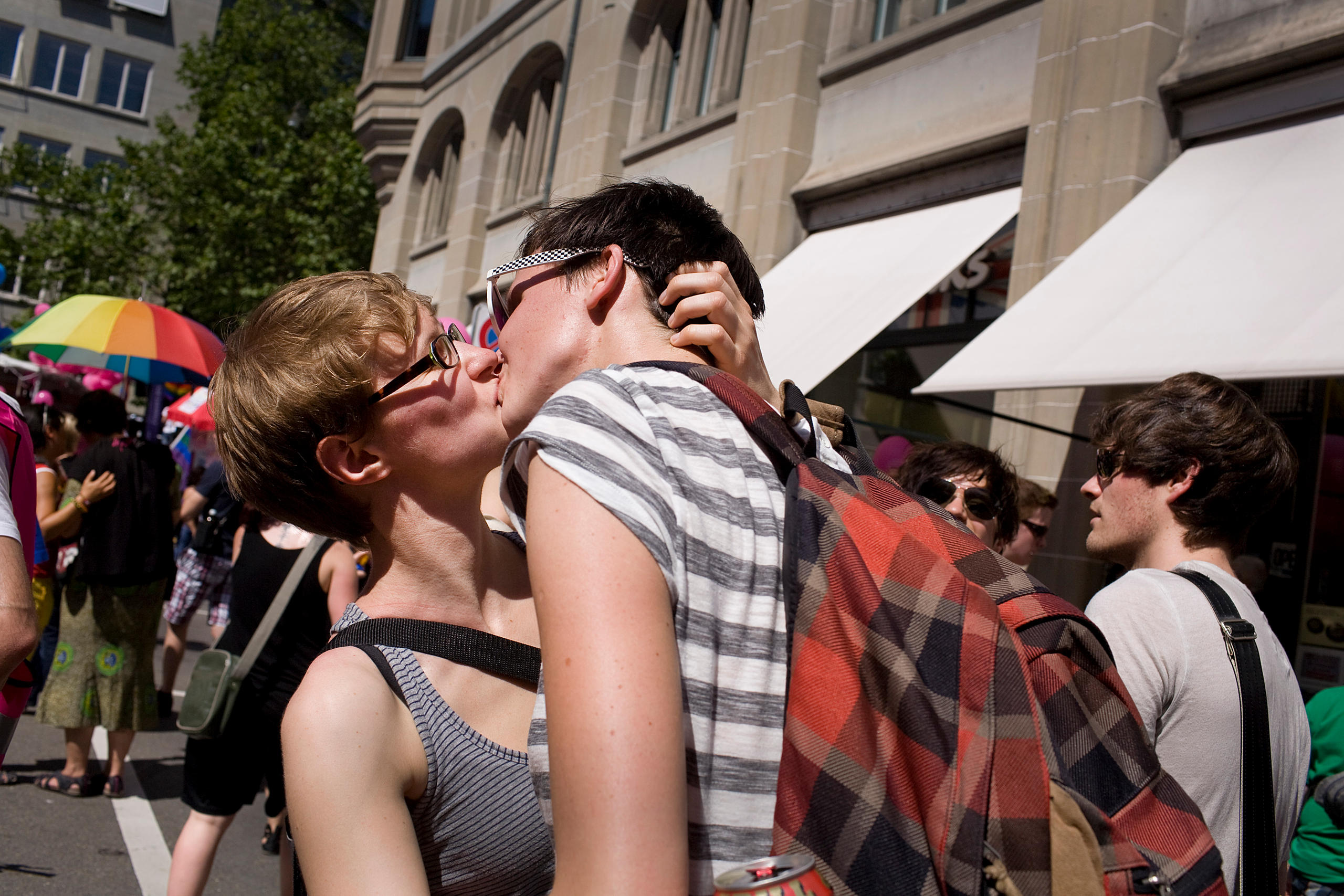
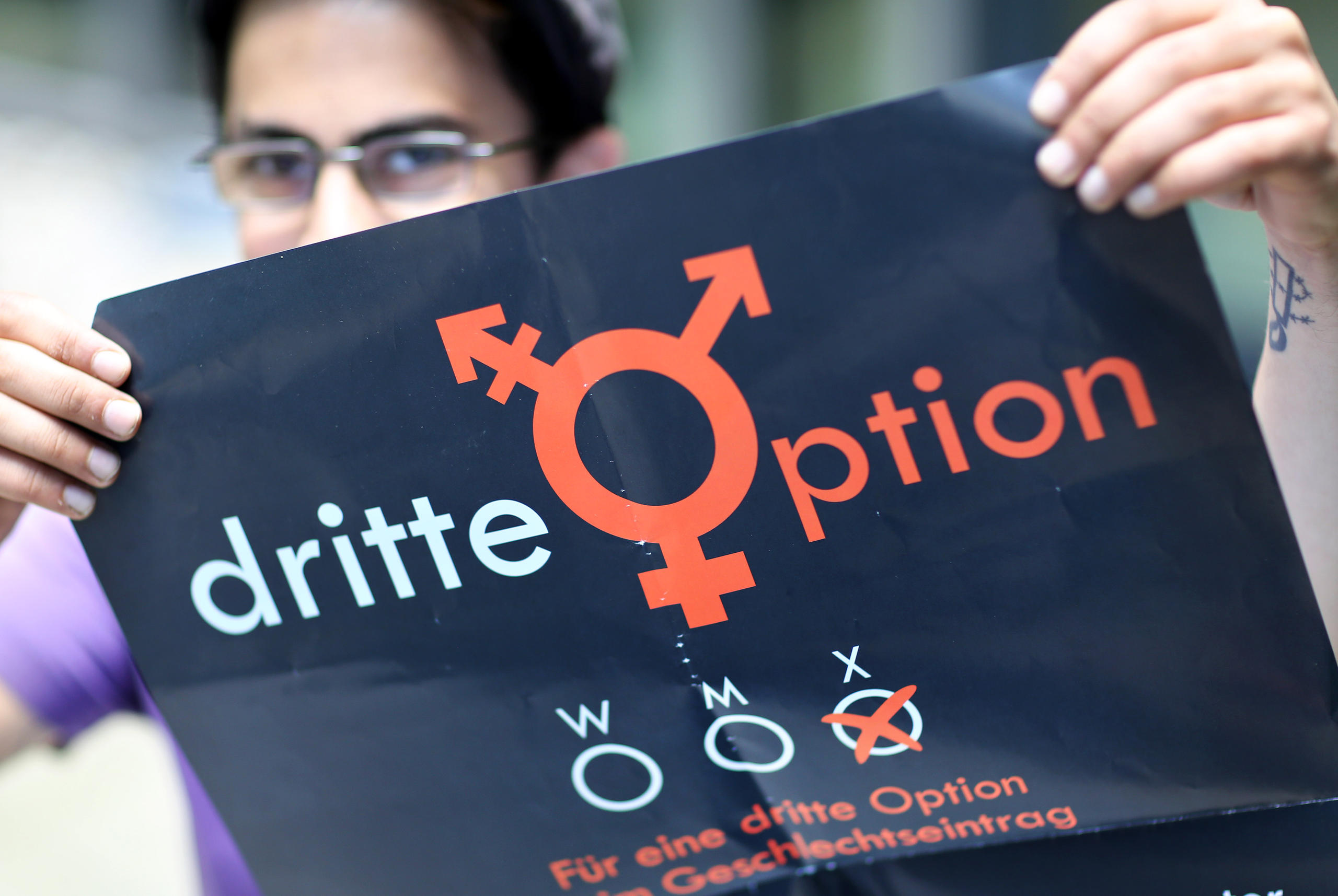


You can find an overview of ongoing debates with our journalists here . Please join us!
If you want to start a conversation about a topic raised in this article or want to report factual errors, email us at english@swissinfo.ch.